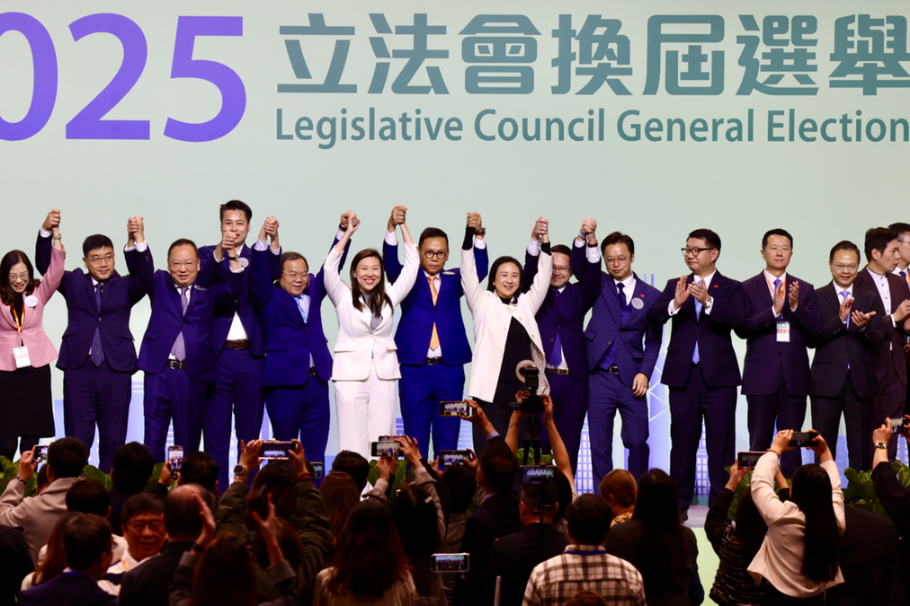Underpinning for prosperity


Sound development of China-ASEAN relations is foundation for the long-term stability and prosperity in Asia
Last year marked the 30th anniversary of the establishment of dialogue relations between China and the Association of Southeast Asian Nations. At a commemorative summit in November, the two sides upgraded the bilateral relationship to a comprehensive strategic partnership.
As a result, China-ASEAN relations got off to a good start this year, with bilateral cooperation in various fields seeing positive progress. During a telephone conversation in March, President Xi Jinping reached a broad consensus on bilateral ties and China-ASEAN cooperation with this year's ASEAN chair, Prime Minister of Cambodia Hun Sen.
Some ASEAN leaders attended the opening ceremony of the Beijing Winter Olympics and Boao Forum for Asia Annual Conference 2022.State Councilor and Foreign Minister Wang Yi visited Vietnam, Cambodia and Singapore, and the foreign ministers of Indonesia, the Philippines, Thailand and Myanmar paid visits to China. These are indicators that China and ASEAN have deepened their political mutual trust. Both sides are committed to working together to fight the COVID-19 pandemic, reopen businesses and production as soon as possible, maintain the momentum of economic and trade cooperation and properly handle complex issues and international disputes. The China-ASEAN trade volume, after its sustained growth in 2020 and 2021, increased by 8.4 percent year-on-year in the first quarter of this year, with the bloc becoming China's largest trading partner once again despite the fresh outbreak of COVID-19 cases.
The enacting of the Regional Comprehensive Economic Partnership and China's increase in agricultural imports from ASEAN have injected strong impetus into bilateral trade. The remarkable growth in trade between China and Indonesia has been encouraging as Indonesia, a member of the G20, has the largest population and economy within the bloc. The operation of the China-Laos Railway, inaugurated last year, has beaten expectations both in volume of passengers and cargo transport. The railway can play a key role in strengthening economic and trade cooperation and personnel exchanges between Southwest China and countries in the Indo-China Peninsula, thus driving the Belt and Road cooperation in the region. Meanwhile, the Jakarta-Bandung High-Speed Railway in Indonesia, a China-Indonesia partnership project, is progressing smoothly, and is expected to be put into operation by mid-2023. The construction of the highway from Phnom Penh to Sihanoukville in Cambodia was completed as scheduled.
The two-way investment between China and the bloc has now exceeded $300 billion. The strong momentum and immense potential for economic and trade cooperation between China and the bloc, against the backdrop of the global economic downturn, has become a highlight of regional cooperation and is conducive to long-term regional prosperity.
Over the past three years, China and ASEAN have worked together in their response to the COVID-19 pandemic and secured a host of outcomes. In his speech at the Boao Forum for Asia Annual Conference 2022, President Xi reiterated China's commitment to provide another 150 million doses of vaccines in assistance to ASEAN. Meanwhile, China and the ASEAN members, including Indonesia, Malaysia and Thailand, have made important progress in the joint production of vaccines.
With the concerted efforts of all parties, the situation in the South China Sea is generally stable. China and the ASEAN members have maintained positive momentum in their consultations on the Code of Conduct in the South China Sea. All parties have stayed highly vigilant against the irresponsible actions of non-regional major powers in the South China Sea, recognizing that a peaceful and stable South China Sea is in the fundamental interests of countries and people in the region.
Chinese leaders have on different occasions reiterated their support for the centrality of ASEAN in the regional architecture. It was with the active coordination of ASEAN that the Regional Comprehensive Economic Partnership came into force on Jan 1, 2022. In the first quarter of this year, the China-ASEAN trade volume accounted for nearly half of the total trade volume between China and all RCEP members, indicating that the two sides have put the agreement in place and the trade pact is starting to pay off. The Master Plan on ASEAN Connectivity 2025 is highly compatible with China's Belt and Road Initiative, a key factor for the progress in infrastructure development in the ASEAN members in recent years. ASEAN holds its own independent views on major international affairs and avoids taking sides, a position that China respects. China is glad to have ASEAN, an important force for maintaining peace and prosperity in the region, as its comprehensive strategic partner.
The healthy and sound development of China-ASEAN relations is beneficial to Asia and the world. The growth of bilateral ties has provided some insightful inspirations for the handling of other affairs in Asia.
Every effort should be made to maintain regional peace. Most developing countries in Asia have experienced foreign invasion and the colonial era, and have been victimized by the Cold War. The past 30 years have witnessed the most substantial growth in Asia. This is largely due to a peaceful and stable regional environment. A key experience from history is that we need to uphold peace. Asian countries must strengthen unity, safeguard the hard-won peace in the region and firmly grasp their own destiny.
It is also important to make every effort to expand win-win cooperation. Asia is now the fastest growing region globally, largely fueled by regional economic integration and cooperation in various fields. The upgrading of the China-ASEAN Free Trade Agreement and better implementation of the RCEP herald the furthering of mutually beneficial cooperation.
It is inevitable for Asian countries to have differences. The key is to proactively manage these differences and strive to find just and reasonable resolutions through peaceful negotiations. We should not let differences dent friendly cooperation. We believe that Asian countries have the ability and wisdom to come up with solutions to the relevant issues and jointly contribute to the building of a new Asia with long-term stability and prosperity.
The author is former Chinese ambassador to Malaysia. The author contributed this article to China Watch, a think tank powered by China Daily. The views do not necessarily reflect those of China Daily.
Contact the editor at editor@chinawatch.cn

































